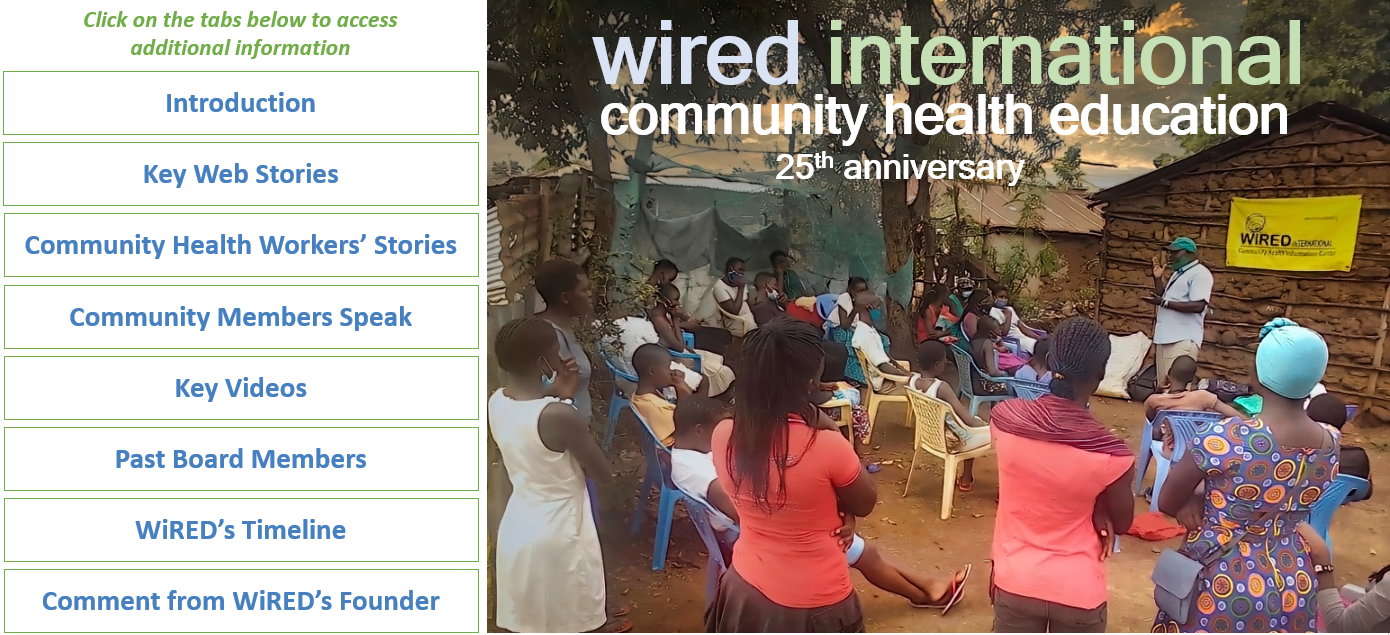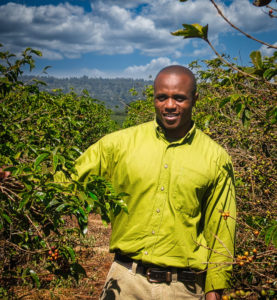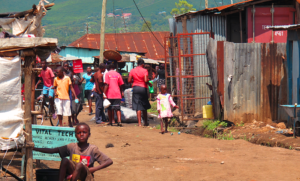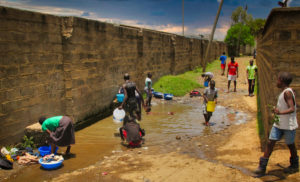WiRED International and Its Impact

A Personal Essay
By Gray Maganga, WiRED Board Member
 I started my work with WiRED some 20 years ago in Nairobi, Kenya. Back then the organization was starting its work with a grant from the U.S. National Institutes of Health to determine if computers could teach young people about HIV/AIDS prevention. WiRED’s educational approach during this particularly difficult period in my home country impressed me because of the organization’s innovations and effectiveness. I joined WiRED’s Nairobi-based team and applied my degree in mathematics to the research portion of the HIV/AIDS project. But, like everyone working in a small organization, I became involved in much more of WiRED’s activities — we all wore many hats!
I started my work with WiRED some 20 years ago in Nairobi, Kenya. Back then the organization was starting its work with a grant from the U.S. National Institutes of Health to determine if computers could teach young people about HIV/AIDS prevention. WiRED’s educational approach during this particularly difficult period in my home country impressed me because of the organization’s innovations and effectiveness. I joined WiRED’s Nairobi-based team and applied my degree in mathematics to the research portion of the HIV/AIDS project. But, like everyone working in a small organization, I became involved in much more of WiRED’s activities — we all wore many hats!
I have visited and worked in many poor communities in Malawi, Tanzania, Ethiopia, Nigeria, Zambia, Mozambique and elsewhere in Africa. In Kenya, where I grew up, I got to see first-hand the benefits evident in communities that have had WiRED Community Health Information Centers (CHICs). For one, health becomes more important on the public agenda. In other words, people became more aware of health-related issues. Maybe it’s because the CHICs were in the center of towns and people could stop in at any time for health information. Maybe it’s because teachers and ministers visited the CHICS and they brought the lessons learned to students and parishioners in the community. For another, people truly learned about health from the CHICs. We gathered empirical data to substantiate that important observation. The CHICs were remarkable innovations in communities where health information was otherwise totally absent.
 WiRED’s Community Health Worker (CHW) Program has now replaced the CHIC program, and in my view, this active outreach effort will likely have a much greater impact overall on community health awareness. Of course, the CHW program also has the added advantage of providing basic clinical services and health monitoring to bridge isolated communities to professional medical services.
WiRED’s Community Health Worker (CHW) Program has now replaced the CHIC program, and in my view, this active outreach effort will likely have a much greater impact overall on community health awareness. Of course, the CHW program also has the added advantage of providing basic clinical services and health monitoring to bridge isolated communities to professional medical services.
Cholera is a good example of how CHWs can impact isolated regions. Cholera is a killer in much of Africa today, and knowledge about its causes and treatments can save lives. CHWs are trusted sources of information, and they bring WiRED’s effective training programs directly to the people. In face-to-face sessions — sometimes with only a few people, and sometimes with large groups — they discuss the things people need to know about cholera. These CHWs provide training in many other infectious diseases, but, at the moment, cholera is a plague facing many communities. I have seen how information changes behaviors, and how changed behaviors can save lives.
 I began as a researcher with WiRED, worked with the organization on one project or another until several years ago, when the leaders of WiRED asked me to join their board. I was happy to accept and now observe the organization from the administrative side of things as well as the operational side.
I began as a researcher with WiRED, worked with the organization on one project or another until several years ago, when the leaders of WiRED asked me to join their board. I was happy to accept and now observe the organization from the administrative side of things as well as the operational side.
I see that WiRED spends almost all of its funds on the ground and they spend nothing on administration — everyone volunteers. From my experience that is rare among non-profits today, especially those that thrive after 25 years! Moreover, this volunteer-driven organization is providing tools and services that communities desperately need but aren’t offered by governments or other NGOs. This is why I will support WiRED and advocate for it because I have seen its impact for two decades and recognize the value it provides people who desperately need their help to acquire good information applied to improve their health and avoid illness.
